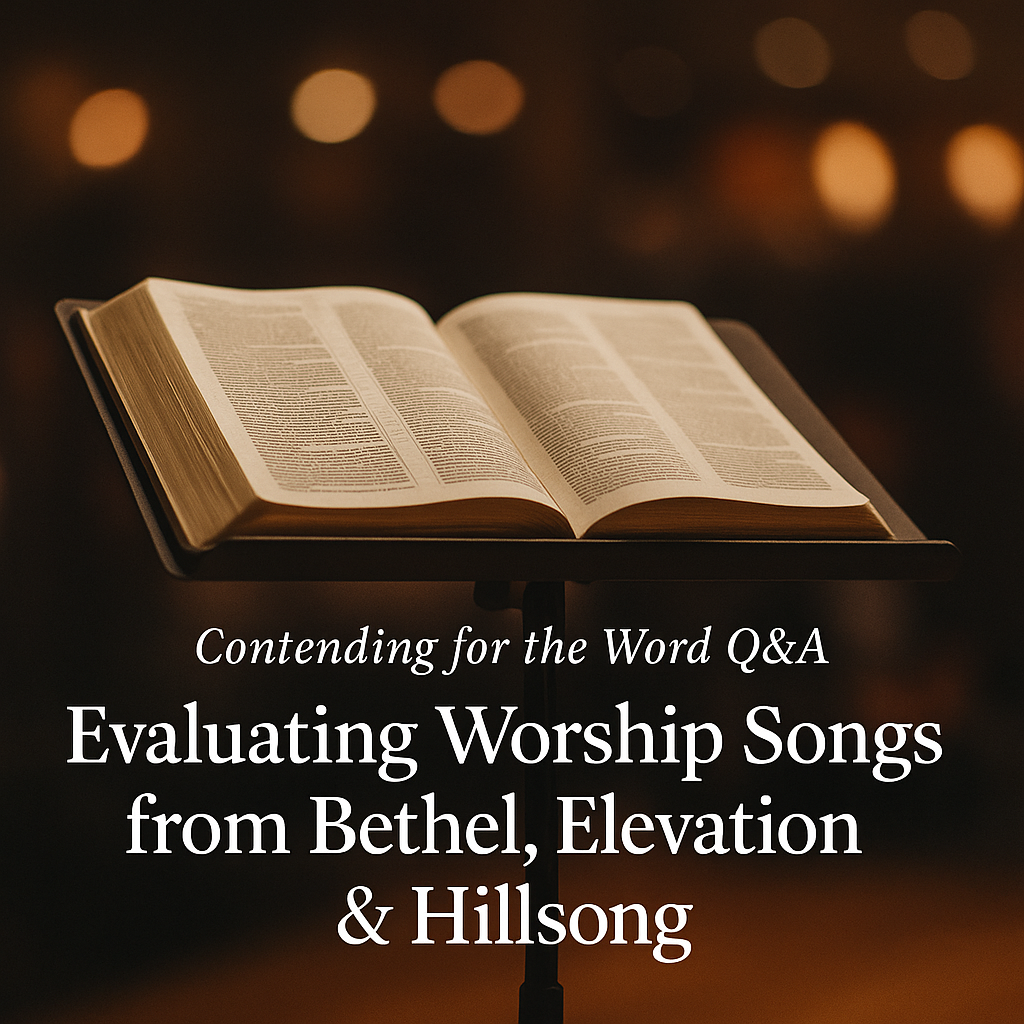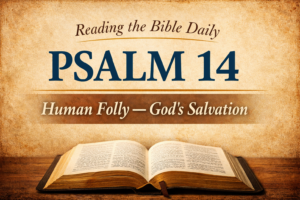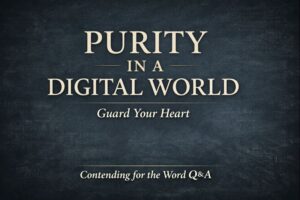⏱️ Estimated Reading Time: 3 min read
Evaluating Worship Songs from Bethel, Elevation & Hillsong
•
Testing Worship by the Word
The first test of any worship song is not how it makes us feel but whether it accords with the truth of God’s Word. Colossians 3:16 calls us to let the Word of Christ dwell in us richly through “psalms and hymns and spiritual songs.” If lyrics distort or minimize the gospel, or present a false view of God, they should be rejected outright. Many modern songs can sound sincere while subtly reshaping our view of God. Leaders guard the flock by ensuring what we sing reflects Scripture faithfully.
The Source Behind the Song
Some argue that a song with sound lyrics can be used regardless of its origin. Yet the source matters. Using songs from Bethel, Elevation, or Hillsong risks associating the church with their broader theology and practices. Members may be drawn to explore teaching, books, and conferences where serious theological errors abound, and royalties/streaming can financially support those ministries. Paul warns that “a little leaven leavens the whole lump” (Gal. 5:9). Discernment is not only about words on the page but the message we platform.
Conscience, Liberty, and Love
Paul’s teaching on food offered to idols (1 Cor. 8–10) provides a framework. Some believers may feel liberty to sing a song if its lyrics are biblically accurate; yet love for the flock means we avoid choices that confuse weaker believers or validate dangerous ministries. The church is responsible for the content it sings and the pastoral effect those choices have on the congregation.
A Path Forward
- Vet every song: Evaluate lyrics for doctrinal faithfulness, gospel clarity, and God-centeredness.
- Consider the source: Ask whether using the song could confuse people or platform error.
- Prioritize clarity: Choose songs that unmistakably exalt Christ and align with Scripture.
- Teach the congregation: Explain why careful choices matter for worship and discipleship.
- Promote sound alternatives: Lean on rich hymnody and trusted modern sources (e.g., Sovereign Grace).
Conclusion
This conversation is not about musical taste but the glory of God in the worship of His people. Songs that are doctrinally thin or sourced from ministries that distort the gospel may move emotions, but they do not build up the church in truth. True worship is about God, not us—and true worship demands truth. As Jesus prayed, “Sanctify them in the truth; your word is truth” (John 17:17). Churches that prize both Spirit and truth will protect the flock, exalt Christ, and sing with integrity before the Lord.
Quick Answer (Shareable Summary)
Should Christians sing songs from Bethel, Elevation, or Hillsong? Even if a lyric looks biblical, using songs tied to false-teaching ministries can confuse the church, platform error, and misdirect believers. Evaluate lyrics carefully, consider the source’s influence, and choose songs that clearly exalt Christ and guard the flock.
Related Resources
Dave Jenkins is happily married to his wife, Sarah. He is a writer, editor, and speaker living in beautiful Southern Oregon. Dave is a lover of Christ, His people, the Church, and sound theology. He serves as the Executive Director of Servants of Grace Ministries, the Executive Editor of Theology for Life Magazine, the Host and Producer of Equipping You in Grace Podcast, and is a contributor to and producer of Contending for the Word. He is the author of The Word Explored: The Problem of Biblical Illiteracy and What To Do About It (House to House, 2021), The Word Matters: Defending Biblical Authority Against the Spirit of the Age (G3 Press, 2022), and Contentment: The Journey of a Lifetime (Theology for Life, 2024). You can find him on Facebook, Twitter, Instagram, Youtube, or read his newsletter. Dave loves to spend time with his wife, going to movies, eating at a nice restaurant, or going out for a round of golf with a good friend. He is also a voracious reader, in particular of Reformed theology, and the Puritans. You will often find him when he’s not busy with ministry reading a pile of the latest books from a wide variety of Christian publishers. Dave received his M.A.R. and M.Div through Liberty Baptist Theological Seminary.




